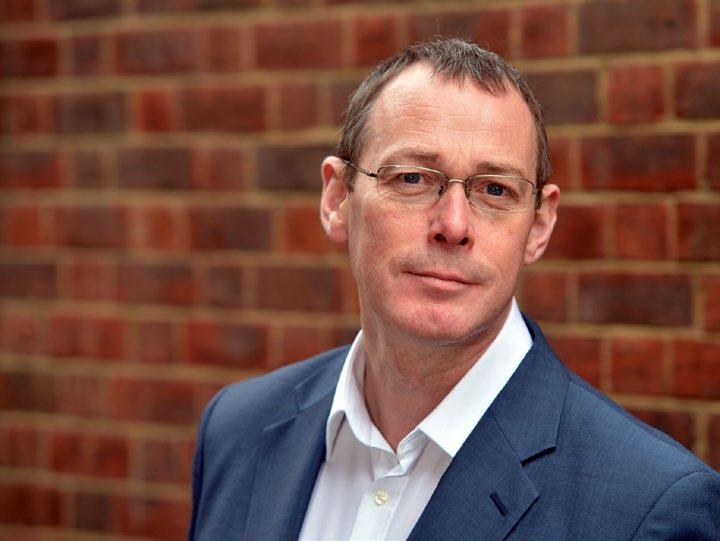
3 minute read
Ear Candy: Dead Pilots Society
also warm and funny. Not inaccurately, Flannery has described it as “a posh soap opera with something to say”, although this underplays the series’ huge ambition.
As the Royal Shakespeare Company’s writer in residence, Flannery had penned a stage version of Our Friends in the North. The 1982 RSC production was seen by BBC producer Michael Wearing (producer of Boys from the Blackstuff and Edge of Darkness), who was determined to bring it to television.
Advertisement
It is often said that the BBC moves slowly, and never more so than with Our Friends in the North. The corporation was fearful that some of the real-life politicians, thinly disguised in Flannery’s script, would sue.
It was perhaps even more terrified at the budget for a series that was forever expanding in size and scope. Originally, Flannery’s epic ended with the triumph of Margaret Thatcher in 1979; the repeated delays allowed him to take it forward to 1995 as his characters approach middle age. By the time it was shot, a three-hour play had become a nine-part TV drama, with episodes of between 63 and 75 minutes.
Shooting was protracted and riven by rows. Directors changed, scripts were rewritten and whole episodes reshot. Eccleston and Strong didn’t get on and spoke only when the camera was rolling. The budget rose to £8m, a huge amount for the time.
Finally, in 1996, Our Friends in the North made it to the screen, and another BBC fear – that audiences would find the politics at the heart of the series a turn-off – proved to be entirely misguided. Viewers and critics loved it, and multiple RTS and Bafta awards followed.
Before the series aired, of the lead actors, only Eccleston had much of a profile (he had appeared in Jimmy McGovern’s Cracker). Our Friends in the North launched their careers: Craig became Bond; Eccleston regenerated as Doctor Who; McKee later starred in Notting Hill and Strong in Tinker Tailor Soldier Spy.
Flannery went on to write the multiRTS-award-winning Channel 4 drama The Devil’s Whore, set during the English Civil War, and then to create the longrunning BBC One series Inspector George Gently.
But Our Friends in the North remains his masterpiece. n
Our Friends in the North is on BritBox.
Ear candy
Emerald Fennell’s Space Bound gets the full read-through
Dead Pilots Society
Taylor Jewell/Invision/AP
For every TV flop that made it past a commissioning team, arguably, there is a small-screen masterpiece cast unfairly into the darkness. The next Fleabag or Line of Duty tossed into the television abyss, taking with it the awards buzz that might have surrounded the breakout stars and the flood of fascinating fan fiction that could have gushed from a new global fan base.
Luckily, the Dead Pilots Society podcast is here to bring these forgotten scripts back to life. Presented by writer and producer Ben Blacker and Friends producer Andrew Reich, Dead Pilots Society gives those overlooked gems that made it to pilot stage without being commissioned for a full series the read-throughs they deserve.
Scripts are dramatically revived and performed by the likes of Richard E Grant, Carey Mulligan, Lolly Adefope, Sam Richardson, Tony Hale and Adam Scott.
In its revamped format, each readthrough episode is followed by a separate interview programme.
The creative minds behind hits such as The Office, Will & Grace and Orange Is the New Black have eye-opening discussions about the development journey of getting a script to screen.
Standout episodes include: the surreal comedy My Cousin Thor by How I Met Your Mother producer Ira Ungerleider; Killing Eve and Promising Young Woman writer Emerald Fennell’s intergalactic comedy Space Bound; and the adaptation by Mike Royce (Everybody Loves Raymond) and Kevin Biegel (Cougar Town) of the 1988 film Big.
While some shows should have stayed on the cutting-room floor, the misfires of some of TV’s most acclaimed writers are still worth a listen. They might even give hope to all the screenwriters yet to get their big break. Kate Holman










